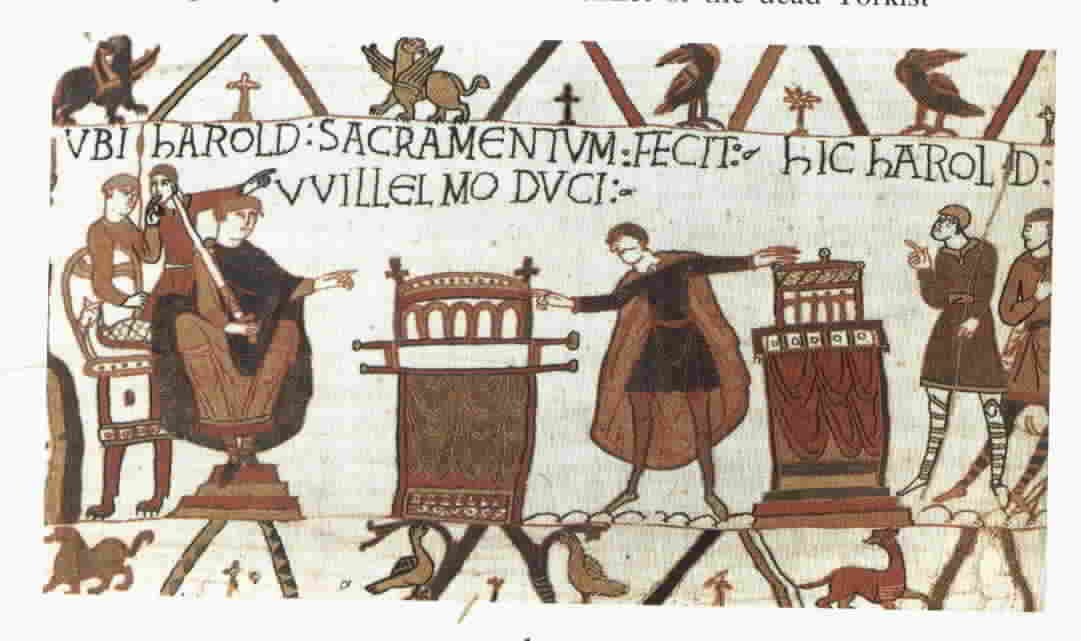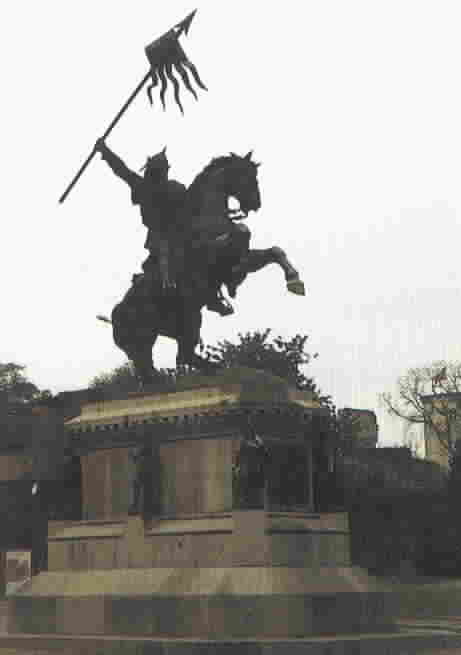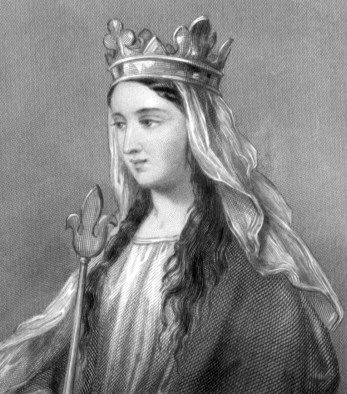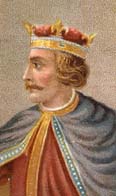de Normandie Family - Ourfolk
King Guillaume de Normandie 14 OCT 1024 - 9 SEP 1087
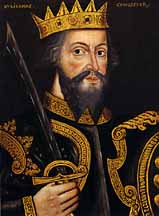 |
King Guillaume was born on 14 OCT 1024 in Falaise, Calvados, Normandy, France and died on 9 SEP 1087 (age: 62) in Hemmenbraville, Rouen, Normandie and was buried in Abbey of St. Stephen, Caen, France . He was the son of Duke Robert I de Normandie (ABT 1003 - 22 JUL 1035) and Herleva de Falaise (de Conteville) (ABT 1003 - 1050). King Guillaume was married to Queen Matilda van Vlaanderen (de Normandie) on 1053. Queen Matilda was born on ABT 1031 in Of, Flandres and died on 2 NOV 1083 in Caen, France . She was the daughter of Count Badouin V of Flanders (ABT 1012 - 1 SEP 1067) and Countess Adele of France (de Nevers) (1003 - 8 Jan 1078-8 Jan 1079). View Family Chart - - -
| ||||||||||||||||||||||||||||||||||||||||||||||||||||||||||||||||||||||||||||||||||||||||||||||||||||||||||||||||||||||||||||||||||||||||||||||||||||||||||||||||||||||||||||||||||||||||||||||||||||||||||||||||||||||||||||||||||||||||||||||||||||||||||||||||||||||||||||||||||||||||||||||||||||||||||||||||||||||||||||||||||||||||||||||||||||||||||||||||||||||||||||||||||||||||||||||||||||||||||||||||||||||||||||||||||||||||||||||||||||||||||||||||||||||||||||||||||||||||||||||||||||||||||||||||||||||||||||||||||||||||||||||||||||||||||||||||||||||||||||||||||||||||||||||||||||||||||||||||||||||||||||||||||||||||||||||||||||||||||||||||||||||||||||||||||||||||||||||||||||||||||||||||||||||||||||||||||||||||||||||||||||||||||||||||||||||||||||||||||||||||||||||||||||||||||||||||||||||||||||||||||||||||
William I, called 'William the Conqueror', was an illegitimate son of Robert I, duke of Normandy. His mother was a tanner's daughter. William succeeded his father when he was only 7 years old. At 24 he had made himself the mightiest feudal lord in all France by various conquests, but his ambition was not satisfied. He laid plans to become king of England also.
William's wife Matilda was descended from the old Anglo-Saxon line of kings. Among their children were four sons: Robert, future duke of Normandy; Richard, who died as a youth; William Rufus, who succeeded his father as king of England; and Henry, who succeeded William Rufus. One daughter, Adela, became the mother of England's King Stephen.
Edward the Confessor, king of England, was William's cousin. William used his connection with Flanders to put pressure on Edward to extort a promise that he would become heir to the English throne. It is probable that Edward made some kind of pledge to William as early as 1051. Edward died childless on Jan. 5, 1066. William then claimed the throne on the basis of this promise. The English, however, chose Harold, earl of Wessex, as their king.
William prepared a large expedition and set sail for England. On Oct. 14, 1066, he defeated and killed Harold at Hastings in one of the decisive battles of the world (see Hastings, Battle of). Then he marched on London, and on Christmas day he was crowned king.
After subduing England's powerful earls, William seized their lands for his Norman nobles and ordered the nobles to build fortified stone castles to protect their lands. As payment for their fiefs, the nobles supplied the king with armed knights. French became the language of the king's court and gradually blended with the Anglo-Saxon tongue.
William won the loyalty of the mass of the people by wisely retaining the old Anglo-Saxon laws, courts, and customs with only a few changes. Thus the principle of self-government, which lies at the root of the political system of English-speaking peoples, was preserved and strengthened. At the same time, William taught the English the advantages of a central government strong enough to control feudal lords.
Toward the end of his reign, William ordered a great census to be taken of all the lands and people of England. This survey was called Domesday Book. Two of the original books may still be seen at the Public Records Office in London. 'So very narrowly did he cause the survey to be made,' complained the old Anglo-Saxon Chronicle, 'that there was not a single rood of land, nor an ox, or a cow, or a pig passed by, and that was not set down in the accounts.'
William was often on the continent dealing with his widespread holdings. He died there in 1087 from injuries received while warring with Philip I of France. William was a man of great stature and had a tremendous voice. Such was the good order he established that, according to a quaint historian of his time, 'any man, who was himself aught, might travel over the kingdom with a bosom of gold unmolested, and no man durst kill another, however great the injury he might have received from him.' He was succeeded in Normandy by his eldest son, Robert, and in England by his second son, William II, called William Rufus.
He invaded England defeating the English forces in the Battle of
Hastings in Oct.
1066. He became King of England on Christmas Day 1066 and ruled until his death in
1087.
He appointed the Norman nobles to high positions and divided the land among
Norman's, forcing most Anglo-Saxons to become servants. William had England
surveyed to determine how much property there was in England and who owned it.
This survey became known as Doomsday Book. It is claimed that the ancestral
lineage of William also is directly traceable to Charlemagne and then on back to
Julius Caesar.
William and Matilda founded two monastic communities in Caen, France.
The Abbaye-auz-Hommes, dedicated to St. Stephan for men,
and the Abbaye-aux-Dames for women.
William's wife Matilda was descended from the old Anglo-Saxon line of kings. Among their children were four sons: Robert, future duke of Normandy; Richard, who died as a youth; William Rufus, who succeeded his father as king of England; and Henry, who succeeded William Rufus. One daughter, Adela, became the mother of England's King Stephen.
Edward the Confessor, king of England, was William's cousin. William used his connection with Flanders to put pressure on Edward to extort a promise that he would become heir to the English throne. It is probable that Edward made some kind of pledge to William as early as 1051. Edward died childless on Jan. 5, 1066. William then claimed the throne on the basis of this promise. The English, however, chose Harold, earl of Wessex, as their king.
William prepared a large expedition and set sail for England. On Oct. 14, 1066, he defeated and killed Harold at Hastings in one of the decisive battles of the world (see Hastings, Battle of). Then he marched on London, and on Christmas day he was crowned king.
After subduing England's powerful earls, William seized their lands for his Norman nobles and ordered the nobles to build fortified stone castles to protect their lands. As payment for their fiefs, the nobles supplied the king with armed knights. French became the language of the king's court and gradually blended with the Anglo-Saxon tongue.
William won the loyalty of the mass of the people by wisely retaining the old Anglo-Saxon laws, courts, and customs with only a few changes. Thus the principle of self-government, which lies at the root of the political system of English-speaking peoples, was preserved and strengthened. At the same time, William taught the English the advantages of a central government strong enough to control feudal lords.
Toward the end of his reign, William ordered a great census to be taken of all the lands and people of England. This survey was called Domesday Book. Two of the original books may still be seen at the Public Records Office in London. 'So very narrowly did he cause the survey to be made,' complained the old Anglo-Saxon Chronicle, 'that there was not a single rood of land, nor an ox, or a cow, or a pig passed by, and that was not set down in the accounts.'
William was often on the continent dealing with his widespread holdings. He died there in 1087 from injuries received while warring with Philip I of France. William was a man of great stature and had a tremendous voice. Such was the good order he established that, according to a quaint historian of his time, 'any man, who was himself aught, might travel over the kingdom with a bosom of gold unmolested, and no man durst kill another, however great the injury he might have received from him.' He was succeeded in Normandy by his eldest son, Robert, and in England by his second son, William II, called William Rufus.
He invaded England defeating the English forces in the Battle of
Hastings in Oct.
1066. He became King of England on Christmas Day 1066 and ruled until his death in
1087.
He appointed the Norman nobles to high positions and divided the land among
Norman's, forcing most Anglo-Saxons to become servants. William had England
surveyed to determine how much property there was in England and who owned it.
This survey became known as Doomsday Book. It is claimed that the ancestral
lineage of William also is directly traceable to Charlemagne and then on back to
Julius Caesar.
William and Matilda founded two monastic communities in Caen, France.
The Abbaye-auz-Hommes, dedicated to St. Stephan for men,
and the Abbaye-aux-Dames for women.
daughter of Boudewijn V van Vlaanderen and Ad le de France
Last change (on this page): 15 OCT 2018
